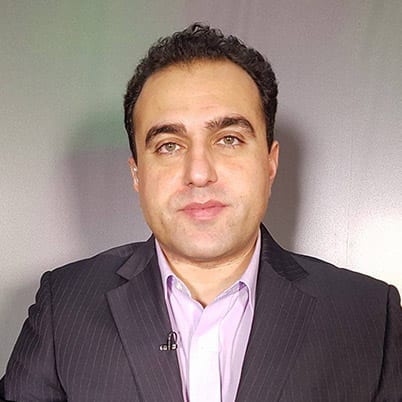Flush with confidence following the successful staging of the FIFA World Cup, the Russian Federation has a renewed confidence about its role in the world. There are plenty of reasons for Russia to feel confident as the country has scored success after success in the past two decades.
Following the chaotic 1990s, marked by a period of steep decline as Russia struggled with the consequences flowing from the disintegration of the Soviet Union, the country has steadily rebuilt its infrastructure and prestige in the 21st century.
This Russian revival is almost totally bound up with the charismatic personality of President Vladimir Putin. By tapping into Russia’s Tsarist heritage – and by constantly referencing the successes of the successor state the Soviet Union – Putin has achieved a dramatic transformation in Russia’s fortunes in the world.
Nowhere is this success more evident than in the Middle Eastern arena, where the Russian Federation has established itself as a major power, potentially rivalling, even possibly superseding, the United States.
Russia split GCC: Next NATO and EU
The key question is to what extent does this Russian re-emergence impact on the regional balance of power and the general political and economic well-being of the region. Moreover, is Russia really a suitable replacement for the United States, or will its presence prove to be equally if not more destabilising?
A chequered history
Putin’s drive to re-establish Russia as a Middle Eastern power is not unfolding in a historical vacuum. In fact, Russia has been involved in the region for centuries. The Russian Empire which preceded the Soviet Union engaged in a wide range of diplomatic, educational and religious initiatives in the region, particularly in the Levant area.
Whereas Tsarist Russia was mostly a non-ideological power, save from its strong attachment to Orthodox Christianity, by stark contrast its successor state, the Soviet Union, was singularly determined to spread its communist ideology across the globe.
In the Middle Eastern arena, however, the Soviet Union was unable to advance the communist cause, as the region’s strong religious value, and specifically the hegemonic grip of Islam, was inimical to the spread of an unabashedly materialistic and godless ideology. To illustrate the point, only South Yemen adopted an openly Marxist-Leninist ideology.
Russia fired UN expert on Yemen over power politics
Set against the backdrop of the Cold War, Soviet policy in the Middle East sought to cultivate radical, and anti-Western regimes. As part of this strategy, the former Soviet Union developed strong ties to Egypt (before the rise to power of Anwar Sadat in 1970) and the Baathist regimes in Syria and Iraq.
While the relationship with Baathist Iraq proved volatile, in Syria the Soviet Union achieved enduring success. The Tartus naval facility – which counts as the Russian Federation’s sole overseas naval base – is a potent symbol of Russian influence in Syria and the wider region. It is one reason behind Russia’s forceful intervention in the Syrian war. Russia is set to reap the rewards of this intervention as demonstrated by reports that Russia is set to keep Tartus at least until 2092.
Balance of power
Russia’s conduct during the Syrian war has demonstrated the country’s pragmatic approach to conflict management and latterly conflict resolution. Unlike the United States, the Russian Federation does not pretend to be ideological. Whereas the US supposedly favours “democracies” over “autocracies”, Putin’s Russia has made it clear it will deal with everyone on equal terms.
This strategy has been most evident in the manner that Russia has balanced the interests of its supposed Iranian ally in Syria and that of Israel, which is a sworn enemy of Iran. By turning a blind eye to repeated Israeli strikes on Iranian and Iranian-aligned positions in Syria, Russia has made it clear that its over-riding, if not exclusive, priority is to secure, increase and sustain its own influence in the area.
There is tension between Iran and Russia in Syria, but talk of a split is premature
Russia has adopted the same approach in regard to the other big regional conflict, namely that between Saudi Arabia and Iran. Whilst maintaining close ties to Tehran, Putin is also actively courting Saudi Arabia’s new strongman Mohammad Bin Salman. This approach not only maximises Russian interests but it has the added advantage of sending an unmistakeable message to Tehran that it should not expect Russian support in the event of a regional escalation.
![Image of Defence Minister of Saudi Arabia Mohammad Bin Salman Al Saud on April 19, 2017 [Bandar Algaloud / Saudi Kingdom Council / Handout/Anadolu Agency]](https://i0.wp.com/www.middleeastmonitor.com/wp-content/uploads/2017/04/20170419_2_23182773_21199412.jpg?resize=1200%2C934&ssl=1)
Mohammad Bin Salman Al Saud, Crown Prince of Saudi Arabia on 19 April 2017 [Bandar Algaloud / Saudi Kingdom Council / Handout/Anadolu Agency]
Looking ahead, the Russian Federation is set to deploy balance of power strategies, and associated divisive measures, to deepen influence and secure its national security interests in the Middle East. Unlike strong indigenous regional powers, such as Iran and Turkey, Russia has both the military muscle and diplomatic reach to dissuade the United States from even considering military action to contain Russian influence.
While this is decidedly good news for the Russian Federation, it is not so good for the peoples of the region as it further complicates regional diplomacy and the search for a lasting solution to the area’s core conflicts.
The views expressed in this article belong to the author and do not necessarily reflect the editorial policy of Middle East Monitor.


![U.S. President Donald Trump (L) and Russia's President Vladimir Putin (R) hold a joint press conference after their bilateral meeting in Helsinki, Finland on 16 July, 2018 [Stringer/Anadolu Agency]](https://i0.wp.com/www.middleeastmonitor.com/wp-content/uploads/2018/07/20180716_2_31490405_35714903-scaled.jpg?fit=1177%2C800&ssl=1)









